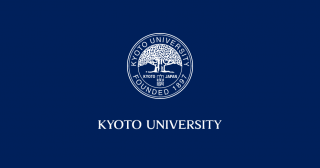"The Last 5X Innovation R&D Center for a Smart, Happy, and Resilient Society" is an R&D initiative led by Kyoto University with support provided by Japan's Ministry of Education, Culture, Sports, Science, and Technology (MEXT) and Japan Science and Technology Agency (JST) under the "Center of Innovation (COI) STREAM" program. On 24 December 2014, Kyoto University hosted a second symposium on the initiative at its Clock Tower Centennial Hall, providing an opportunity for the participating researchers to report on their activities over the past year.
The event drew more than 150 attendees from within the University and elsewhere, while close to 100 people participated in the "technology exchange meeting" held afterwards.
The symposium commenced with opening remarks by Dr Tsuyoshi Nomura, Managing Director of Panasonic Corporation and Project Leader for The Last 5X Innovation R&D Center, followed by speeches by five guests: Dr Yuzuru Matsuda, President of the Kato Memorial Bioscience Foundation and Visionary Leader for the Vision 1 team of the MEXT-JST COI STREAM program; Dr Shuichi Sakamoto, Director of the MEXT's University-Industry Collaboration and Regional R&D Division; Mr Akito Tani, Deputy Director-General of the Manufacturing Industries Bureau at Japan's Ministry of Economy, Trade, and Industry (METI); Mr Kazuya Suzuki, a member of Kyoto Prefecture's Department of Commerce, Labor, and Tourism in charge of the Kansai Innovation International Strategic Comprehensive Special Zone project; and Mr Yasuji Kitamura, director of the New Industry Promotion Office at Kyoto City's Industry and Tourism Bureau.
After these speeches, Professor Hiroo Iwata from Kyoto University's Institute for Frontier Medical Sciences gave a keynote lecture entitled "Regenerative Medicine Having Arrived at the Engineering Phase: Moving Closer to a Smart, Flexible, and Accommodating Society", before six researchers presented on their Innovation R&D projects. The presentations given were "Solid Hydrogen-Sourced Fuel Cells for Medical Use Made with Recycled Materials" by Professor Kazuyuki Hirao (Graduate School of Engineering, Kyoto University), "Remote Vital Signs Monitoring Enabled by an Ultra-Wideband Radar System" by Assistant Professor Takuya Sakamoto (Graduate School of Informatics, Kyoto University), "Light-Emitting Textured Paving Blocks Designed to Improve the Nighttime Safety of Low-Vision Pedestrians" by Professor Kazunari Morimoto (Graduate School of Science and Technology, Kyoto Institute of Technology), "Cloud-Powered and Flexible: Health-Promotion Program of the Future" by Professor Fumihiko Matsuda (Center for Genomic Medicine, Graduate School of Medicine, Kyoto University), "Semi-Automated Planning and Time-Series Analysis of Surgical Processes Based on the Use of 3D Images" by Associate Professor Megumi Nakao (Graduate School of Informatics, Kyoto University), and "Developing a Drug Discovery Support System That Makes Extensive Use of Robotics Technology" by Mr Toshiaki Yamauchi, team leader at Panasonic Corporation's Monozukuri Division.
The "technology exchange meeting", meanwhile, was comprised of a poster session in which 30 research topics were presented on 30 display panels.

From left: Dr Nomura, Professor Iwata, Professor Hirao, and Assistant Professor Sakamoto

From left: Professor Morimoto, Professor Matsuda, Associate Professor Nakao, and Mr Yamauchi

Dr Nomura discussing the COI STREAM project

Professor Iwata giving a keynote lecture
About "The Last 5X Innovation R&D Center for a Smart, Happy, and Resilient Society" -- a COI STREAM project at Kyoto University
One of the COI STREAM projects supported by MEXT and JST, Kyoto University's "The Last 5X Innovation R&D Center for a Smart, Happy, and Resilient Society" seeks to help build a "smart, flexible, and accommodating society" -- one in which citizens remain active and continue to pursue new challenges throughout their lives -- by enabling participating businesses and universities to collaborate both horizontally and vertically across industries and disciplines -- including engineering, medicine, economics, psychology, and social sciences -- in the development and deployment of technologies that can help advance their shared vision of an ideal society.





